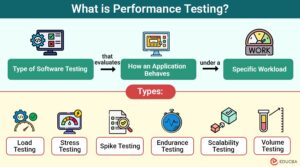Types of Learning Management Systems (LMS)
However, not all LMS platforms are the same. Understanding the different types of LMS can help you select the right one for your organization’s needs.
Cloud-based LMS platforms are hosted by the vendor and accessed through the internet. You don’t need to install or maintain any software on your own servers.
- Quick setup and deployment
- Accessible anytime, anywhere, on any device
- Automatic updates and backups handled by the provider
- Scalable to support growing numbers of users
- Lower upfront costs (subscription-based pricing)
A self-hosted LMS is installed and run on your own organization’s servers or private cloud.
- Full control over data, security, and customization
- Ability to tailor features specifically to your needs
- No recurring subscription fees (usually a one-time license)
- Requires technical knowledge to install, customize, and maintain
- Support mainly community-driven
A custom-built LMS is developed from scratch or tailored heavily to fit unique business or educational requirements.
- Tailored exactly to your business processes and training goals
- Maximum flexibility and scalability
- Competitive advantage through unique features
- High development and maintenance costs
- Longer time to deploy
How to Choose the Best LMS for Your Organization?
Selecting the right Learning Management System (LMS) is an important decision that can significantly impact the success of your training and development efforts.
The best LMS will match your goals, grow with your organization, and support ongoing learning over time.
Here are key points to help you make the right choice:
1. User Experience & Interface
A modern LMS must prioritize user experience (UX) to keep learners engaged and reduce frustration. The best systems offer:
Intuitive and User-Friendly Design: Clear navigation menus, streamlined dashboards, and simple workflows allow learners to focus on content without wasting time figuring out how to use the platform.
Mobile Compatibility: With more learners accessing training via smartphones and tablets, a responsive LMS or dedicated mobile app ensures seamless learning anywhere, anytime.
Multilingual Support: Global organizations benefit from LMS platforms that support multiple languages, making training accessible to diverse audiences worldwide.
2. Customization and Branding
An effective LMS should allow organizations to tailor the platform to reflect their unique identity and training needs. The best systems offer:
White-Labeling Options: Remove vendor logos and replace them with your own branding to create a seamless, professional experience for learners.
Flexible Themes and Layouts: Customize colors, fonts, and layouts easily to match your company’s style without needing advanced technical skills.
Personalized User Roles: Define custom roles and permissions to control what different users see and access, ensuring relevant experiences for all learner groups.
Effective course management tools empower training teams to create, organize, and deliver content efficiently.
Course Creation and Authoring: Look for easy editors so content creators can build interactive, multimedia-rich courses without programming skills.
Support for Multiple Content Formats: Videos, PDFs, SCORM, xAPI, PowerPoint, and more should all be easily uploaded and managed.
Course Catalog and Enrollment: A well-organized course catalog helps learners find relevant content quickly. Automated enrollment options improve administration.
Standards Compliance: Compatibility with SCORM, xAPI, and AICC ensures your LMS can track and report learning activities accurately.
Our LMS features intuitive course creation, broad content format support, and automated enrolment, all designed to streamline your eLearning and training delivery and keep content fresh.
4. Assessment and Testing Features
To measure learning effectiveness, a modern LMS needs robust assessment capabilities.
Customizable Quizzes and Tests: Variety in question types (multiple choice, true/false, essay) keeps assessments engaging.
Automated Grading: Instant feedback saves instructors time and helps learners understand their performance.
Competency and Skill Tracking: Track mastery of key skills and compliance requirements for certifications.
5. Communication and Collaboration Tools
Learning thrives in a collaborative environment.
Discussion Forums and Social Learning: These features encourage peer-to-peer interaction, sharing best practices, and community building.
Messaging and Notifications: Automated alerts and announcements keep learners on track.
Live Classes and Webinar Integration: Integration with tools like Zoom or Microsoft Teams supports real-time instructor-led training.
6. Personalization and Adaptive Learning
Modern learners expect training tailored to their unique needs.
Custom Learning Paths: Tailor courses based on job roles, skill levels, or learner interests.
AI-Powered Recommendations: Use artificial intelligence to suggest relevant courses and resources.
Gamification Elements: Badges, points, and leaderboards increase motivation and make learning fun.
7. Reporting and Analytics
Data-driven insights help organizations refine their training strategies.
Real-Time Dashboards: Track learner progress, course completion, and engagement metrics at a glance.
Detailed Performance Reports: Drill down into assessment scores, time spent on courses, and more.
Compliance and Certification Tracking: Stay audit-ready with automated compliance monitoring.
Our LMS offers real-time dashboards, detailed performance reports, and automated compliance tracking to give you complete visibility and control.
8. Integration and Scalability
An LMS should work well within your existing technology ecosystem and grow with you.
Third-Party Integrations: Connect with HR systems, CRM tools, content libraries, and payment gateways.
API Access: For custom development and seamless workflow automation.
Scalability: Support increasing numbers of learners and expanding content without slowing down.
9. Security and Compliance
Protecting sensitive data and adhering to legal standards is paramount.
Data Privacy: Compliance and industry-specific regulations protects learner information.
Secure Authentication: Multi-factor authentication (MFA) and single sign-on (SSO) enhance security.
Data Backup and Disaster Recovery: Ensure data integrity and availability in case of emergencies.
10. Administration and Support
Effective LMS administration minimizes overhead and supports smooth operations.
Role-Based Access Control: Define permissions for learners, instructors, managers, and administrators.
Automated Workflows: Enrollment, reminders, and certification renewals should be automated.
Responsive Customer Support: Access to responsive technical support and training resources ensures smooth operation.
Partner with us to leverage powerful role-based access control, automated workflows, and dedicated customer support, ensuring your online training and eLearning runs smoothly and scales effortlessly.
11. Future-Proof Features
Invest in an LMS that will keep your training ahead of the curve.
Cloud-Based Deployment: Ensures easy access, automatic updates, and scalability.
Continuous Innovation: Regular platform updates and new features keep you competitive.
Why Choose Our Benchstep Learning Management System (LMS)?
Benchstep cloud-based LMS is designed to empower both educators and learners by delivering a comprehensive, secure, and user-friendly learning environment.
Here’s why Benchstep LMS stands out:
BenchStep LMS offers an intuitive interface that makes course creation, navigation, and participation effortless, enabling users of all skill levels to engage smoothly and confidently.
2. Flexible Content Delivery
BenchStep LMS supports a wide range of content types including videos, documents, quizzes, and interactive modules, enabling you to design rich and dynamic learning experiences tailored to your audience.
3. Accessibility Anywhere, Anytime
Compatible with all devices and operating systems, BenchStep LMS allows learners to access courses seamlessly whether they’re on a desktop, tablet, or smartphone, providing ultimate flexibility.
BenchStep LMS offers competitive pricing without sacrificing features, helping you maximize your training budget.
5. 24/7 Support and Training
Our expert support team is available around the clock to assist with any questions or technical issues. We also offer comprehensive training materials and onboarding support to empower administrators and users alike.
Ready to transform your training with BenchStep LMS?
Discover a user-friendly, flexible, and secure Learning Management System (LMS) designed to fit your budget.
Frequently Asked Questions
Q1. Why is an LMS important for corporate training?
A: An LMS streamlines employee training by providing consistent, scalable, and trackable learning experiences, improving workforce skills and compliance while reducing training costs.
Q2. Who can benefit from using an LMS?
A: Businesses, educational institutions, trainers, and learners of all levels can benefit from an LMS to facilitate remote learning, skills development, and knowledge management.
Q3. Why choose cloud-based LMS over traditional training methods?
A: Cloud-based LMS offers flexibility, cost savings, real-time updates, remote access, and easier management compared to traditional, in-person training.
Q4. What makes BenchStep LMS the best choice for my organization?
A: BenchStep LMS combines ease of use, flexible content delivery, and robust security with competitive pricing, offering a scalable solution tailored to your unique training needs.
Q5. How customizable is BenchStep LMS for different industries?
A: BenchStep LMS is highly customizable to fit various industries from healthcare to finance to education, allowing you to tailor training content, branding, and workflows to your specific requirements.



